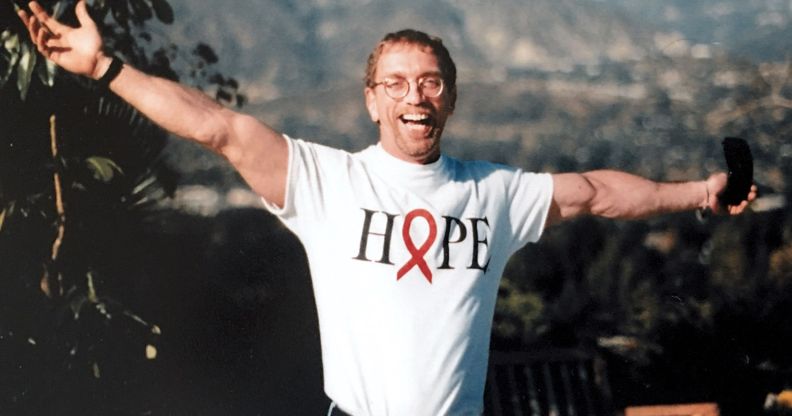Steven Pieters: One of the longest-living HIV survivors in US dies after cancer battle

HIV activist and long-term survivor Steven Pieters has died, aged 71. (Facebook/Steven Pieters)
Rev. Steven Pieters, a minister, HIV advocate and one of the longest-living survivors of HIV in the US, has died after a prolonged battle with cancer.
The 71-year-old reportedly passed away on Saturday (8 July) after battling various types of cancer over the past year.
The reverend and activist was best known for his powerful 1985 interview with Tammy Faye Bakker, in which he addressed many of the fears surrounding AIDS and HIV. The historic Bakker interview was one of the very first national, long-form interviews conducted with an HIV-positive gay man.
Actor Jessica Chastain, who played Faye Bakker in the 2021 film The Eyes of Tammy Faye, shared her condolences in a tweet, calling Pieters an “inspiration and advocate for those living with HIV/AIDS”.
The Zero Dark Thirty star wrote: “Rest in peace sweet angel Steve. You made a difference in the lives of so many and you will be missed.”
Pieters had been living with HIV for over 35 years before his death and became a staunch advocate in recovery communities.
Born in 1952, Pieters was raised in Andover, Massachusetts where he attended Phillips Andover, a private boarding school, before eventually moving to Illinois where he earned a Bachelor of Science in Speech at Northwestern University.
Prior to his HIV diagnosis, Pieters worked at the Metropolitan Community Church (MCC) as one of the leading gay activists and pastors in Connecticut. He resigned from the position in 1982 and travelled to Los Angeles, where he was eventually diagnosed with AIDS and stage four lymphoma two years later.
Pieters was told by one medical worker that he would not live to see 1985.
However, this did not come to pass and Pieters confounded expectations after living to see not only 1985 – but 38 years beyond.
Pieters went on to serve as a field director of the AIDS Ministry for the MCC denomination, working on various HIV and AIDS campaigns across the US, including the Los Angeles AIDS Task Force and the AIDS National Interfaith Network.
The HIV activist’s appearance on Tammy Faye Bakker’s television show in 1985 saw him detail the discrimination he faced since his diagnosis, telling Bakker: “I was asked not to use the bathroom in one person’s home.
“I remember going to a party once where, every time I finished my soft drink, the host took the glass into the open kitchen … and steam-cleaned it every time,” Pieters continued.
“Yes, people are scared sometimes, they don’t know how to deal with terminal illness, they don’t know how to deal with something as stigmatised as AIDS.
“But I also have to say, Tammy, that there have been an enormous number of people in the gay and lesbian community, as well as the AIDS Project and MCC, who have gathered around me and really cared for me.”
Pieters became the first patient on an antiviral drug trial for Suramin, which he took for 39 weeks. While on Suramin, both of the cancers he was suffering from went into remission, although the drug was later discontinued due to its toxic side effects.
He experienced a number of illnesses over his lifetime, including battling pancreatitis, which almost killed him in 2012. In 2019, examples of Pieters’ work and life as a person with HIV/AIDS were placed in the Smithsonian National Museum of American History.
Various members of the LGBTQ+ community took to social media to praise Pieters’ life and legacy after news of his death was announced. Project Angel Food’s director of comms, Brad Bessey, said: “What a gift it was to get to know Steve in his final days on earth before this amazing man took flight in the heavenly plane.
“I spent time with him as his story was featured in our Lead with Love special on KTLA 5 News in June.
“He told me, as we sat in his house: ‘The quality of life is not measured by the length of life but by the fullness with which we enter into each present moment, and as long as we are alive we are called upon to love’.”
To learn more about HIV and AIDS research, testing and treatment, visit amFAR or the Terrence Higgins Trust.

